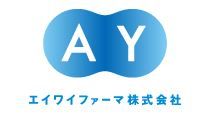预约演示
更新于:2025-05-07
L-Isoleucine /L-Leucine /L-Lysine Acetate /L-Methionine/L-Phenylalanine /L-Threonine/L-Tryptophan/L-Valine/L-Alanine/L-Arginine/L-Aspartic Acid /L-Histidine/L-Proline/L-Serine/L-Tyrosine/Glycine
L-异亮氨酸/L-亮氨酸/L-赖氨酸醋酸盐/L-蛋氨酸/L-苯丙氨酸/L-苏氨酸/L-色氨酸/L-缬氨酸/L-丙氨酸/L-精氨酸/L-天冬氨酸/L-组氨酸/ L-脯氨酸/L-丝氨酸/L-酪氨酸/甘氨酸
更新于:2025-05-07
概要
基本信息
非在研机构- |
权益机构- |
最高研发阶段批准上市 |
首次获批日期 日本 (1992-05-30), |
最高研发阶段(中国)- |
特殊审评- |
登录后查看时间轴
结构/序列
分子式C3H7NO2 |
InChIKeyQNAYBMKLOCPYGJ-REOHCLBHSA-N |
CAS号56-41-7 |
查看全部结构式(16)
研发状态
10 条最早获批的记录, 后查看更多信息
登录
| 适应症 | 国家/地区 | 公司 | 日期 |
|---|---|---|---|
| 肝性脑病 | 日本 | 1992-05-30 |
登录后查看更多信息
临床结果
临床结果
适应症
分期
评价
查看全部结果
登录后查看更多信息
转化医学
使用我们的转化医学数据加速您的研究。
登录
或

药物交易
使用我们的药物交易数据加速您的研究。
登录
或

核心专利
使用我们的核心专利数据促进您的研究。
登录
或

临床分析
紧跟全球注册中心的最新临床试验。
登录
或

批准
利用最新的监管批准信息加速您的研究。
登录
或

特殊审评
只需点击几下即可了解关键药物信息。
登录
或

生物医药百科问答
全新生物医药AI Agent 覆盖科研全链路,让突破性发现快人一步
立即开始免费试用!
智慧芽新药情报库是智慧芽专为生命科学人士构建的基于AI的创新药情报平台,助您全方位提升您的研发与决策效率。
立即开始数据试用!
智慧芽新药库数据也通过智慧芽数据服务平台,以API或者数据包形式对外开放,助您更加充分利用智慧芽新药情报信息。
生物序列数据库
生物药研发创新
免费使用
化学结构数据库
小分子化药研发创新
免费使用
